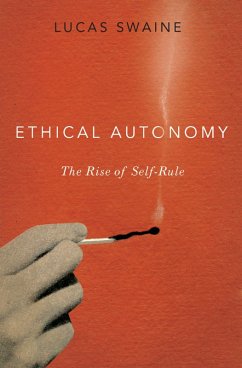Autonomy is one of the most foundational conditions of liberalism, a political philosophy that prizes individual freedom. Today, we still grapple with autonomy's value and its implications. How important is autonomy for a good life? Should people try to achieve autonomy for themselves? And does autonomy support healthy citizenship in free societies? In
Ethical Autonomy, Lucas Swaine offers new and compelling answers to these key philosophical and political questions. Swaine charts the evolution of autonomy from ancient Greece to modern democratic life. Illuminating the history of the concept and its development within political theory, he focuses on autonomy at its most basic level: personal autonomy. Swaine methodically exposes the dark side of personal autonomy, pinpointing its deficiencies at both theoretical and practical levels. In so doing, he provides a powerful critique of the very idea of personal autonomy, arguing that it is so underspecified and indeterminate that it falls apart. Moreover, Swaine suggests, personally autonomous individuals devolve and degrade their moral agency, often at others' expense, and in many cases with shocking real-world consequences. Swaine's solution to problems of personal autonomy is to develop a new model of individual-level autonomy, which he calls "ethical autonomy." A form of self-rule integrating moral character and grounded in principles of liberty of conscience, ethical autonomy incorporates restraints on an autonomous individual's imagination, deliberation, and will. It supports the central commitments of liberalism and enhances active and astute forms of democratic citizenship. This novel understanding of autonomy stresses the values of freedom, toleration, respect, individual rights, limited government, and the rightful rule of law.
Dieser Download kann aus rechtlichen Gründen nur mit Rechnungsadresse in A, B, BG, CY, CZ, D, DK, EW, E, FIN, F, GR, HR, H, IRL, I, LT, L, LR, M, NL, PL, P, R, S, SLO, SK ausgeliefert werden.









